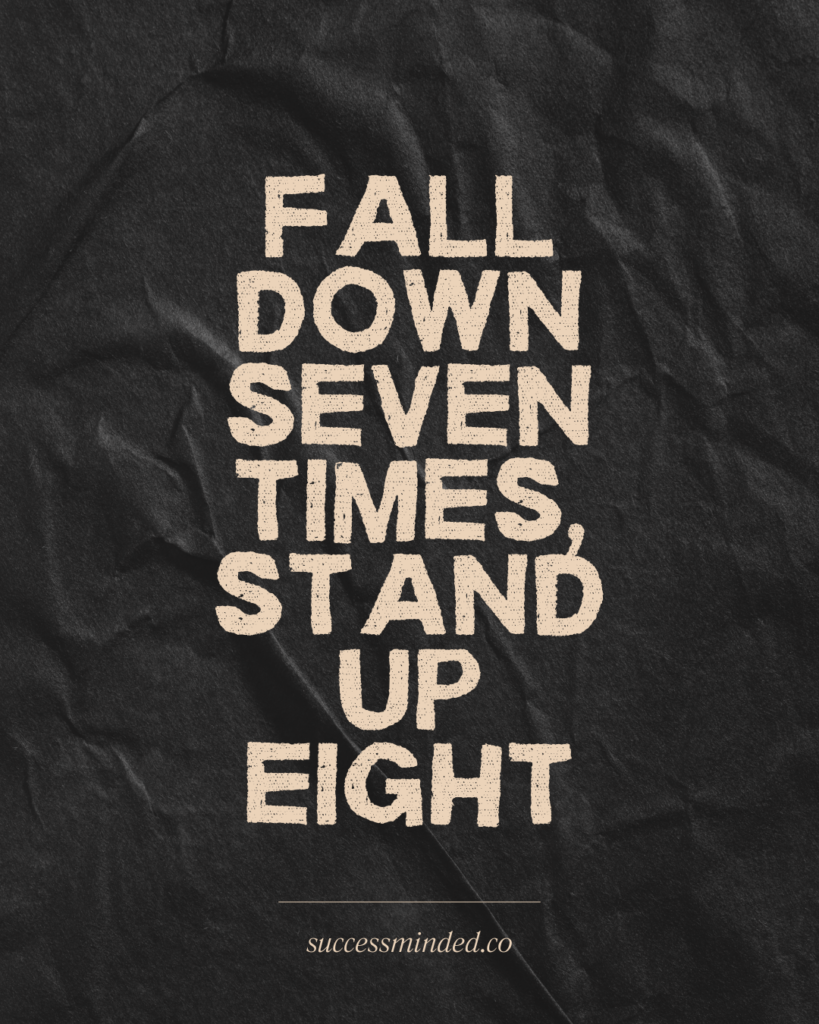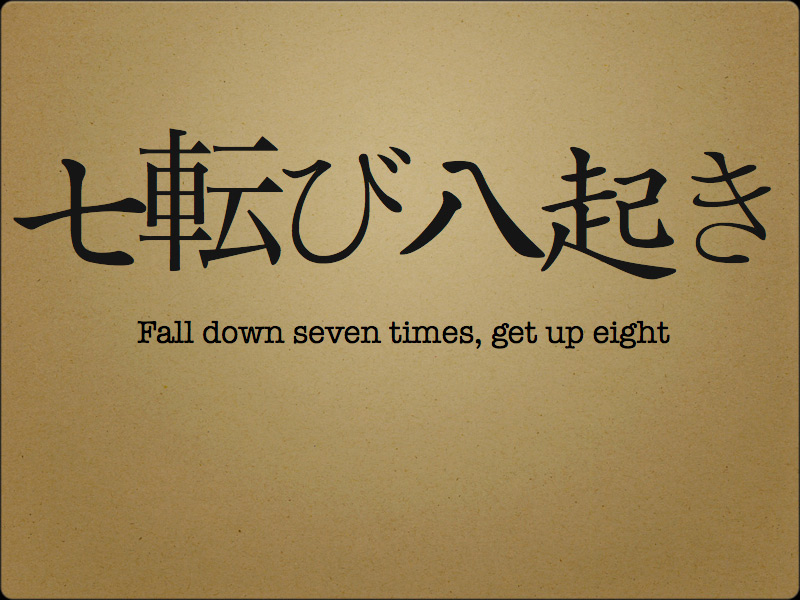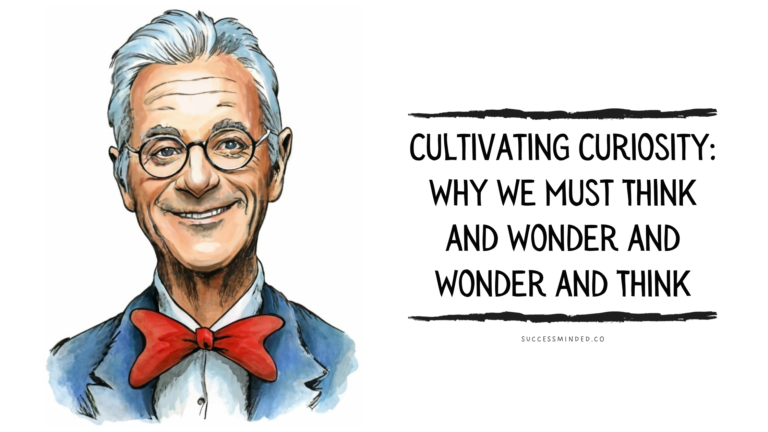Ever Feel Like You Can’t Catch a Break? Here’s How to Embrace the Art of Resilience
Life has a funny way of knocking us down when we least expect it – a bad grade after studying for hours, a sudden breakup, or a promotion that goes to someone else. In times like these, it’s easy to feel defeated and tempted to stay down.
But an ancient Japanese proverb offers a powerful mindset shift: “Fall down seven times, stand up eight.” This philosophy highlights the importance of resilience – getting back up and trying again with even more determination.
The Meaning Behind the Proverb, “Fall down seven times, stand up eight.”
This maxim equates the inevitable struggles and failures we face to “falling down.” Rather than viewing these setbacks as demoralizing, it advocates seeing them as opportunities for growth and learning.

No matter how often life trips you up – symbolized by the number seven – you must find the strength to stand back up one more time. The spirit behind this proverb emphasizes indefatigability and grit – continuing to rise up stronger and wiser than before, no matter what tries to hold you down.
At its core, the saying conveys that giving up should never be an option. There is always another round left in you. Learn from what went wrong last time and let it fuel your comeback.
Why Cultivating Resilience Matters
Life is full of challenges – it’s impossible to reach our goals and dreams without some falls along the way. Adopting a resilient mindset helps us take these setbacks in stride. Instead of defeating us, they become a chance to grow.
Pushing through difficulties builds character, self-efficacy, and confidence in our ability to handle whatever comes next. Not letting failures or criticism stop us in our tracks enables us to keep pursuing our most cherished dreams and goals.
A “fail fast, learn fast” mentality leads to innovation as we continually improve on the feedback life provides us. Facing struggles head-on relieves anxiety about the inevitable ups and downs we all face. Things might not always go as planned, but with resilience, we can trust we’ll find our footing again.
Applying This Timeless Wisdom

How can you put this powerful concept of indefatigable resilience into practice when life pulls the rug out from under you?
- View failures or criticism as precious learning opportunities, not reasons to quit.
- Take time to review setbacks objectively, gain insight, then redirect efforts and move forward.
- Celebrate small wins and progress – this builds confidence to keep trying.
- Lean on mentors, social support, and community to gain an uplifting perspective after hard times.
- Stay focused on what you can control – your effort, problem-solving, actions, and attitude.
- Be flexible – tweak plans if needed based on lessons learned, but maintain focus on overall goals.
- Practice self-compassion – don’t beat yourself up endlessly over stumbles.
Cultivating a Growth Mindset

The essence of this Japanese proverb powerfully aligns with adopting a growth mindset. Growth mindset is the belief that abilities and intelligence can be developed through effort, practice, and persistence. It stands in contrast to a fixed mindset that views talents and skills as static.
Psychologist Carol Dweck’s research shows that people with a growth mindset tend to demonstrate greater resilience when facing setbacks. They remain committed to growth in the face of challenges. Her work demonstrated that viewing struggles as learning opportunities, not signs of permanent failure, is key to unlocking potential.
This mirrors the spirit of the maxim to always rise back up after falling. With a fixed mindset, people become discouraged in the face of difficulty and are quicker to give up. But those with a growth mentality dig in their heels and persist, using failures to enhance their abilities – just as the proverb instructs us to do.
By continually getting back up, we expand what we’re capable of and develop new skills. What was once a weakness can become a strength through this growth-focused resilience. Setbacks are inevitable, but how we respond to them makes all the difference.
Conclusion
At its core, this Japanese proverb speaks to the undying power of the human spirit to rise up again and again. Rather than stay down after the seventh fall, choose to stand up for an eighth round, wiser and tougher than before. Where there’s resilience, there is always hope.




Pingback: Never Forget Who Was There For You When No One Else Was – Success Minded